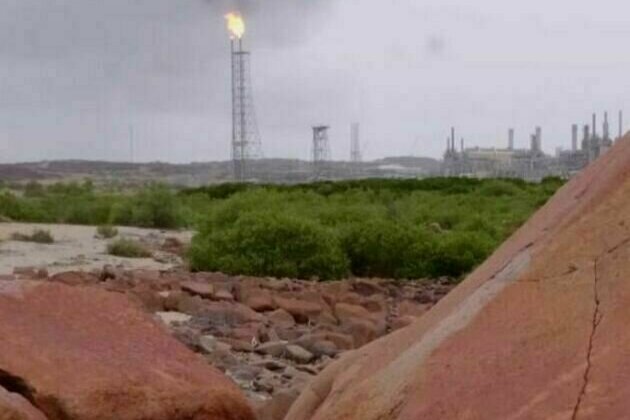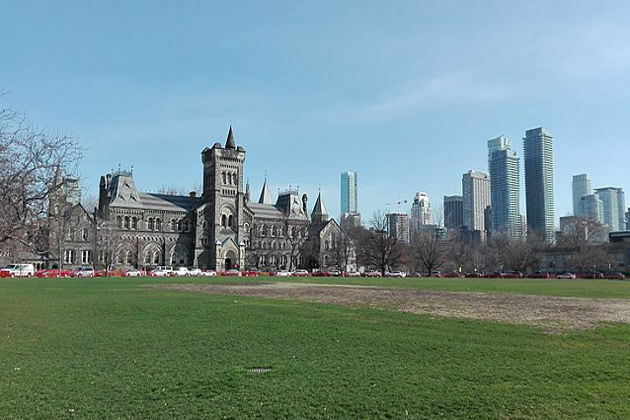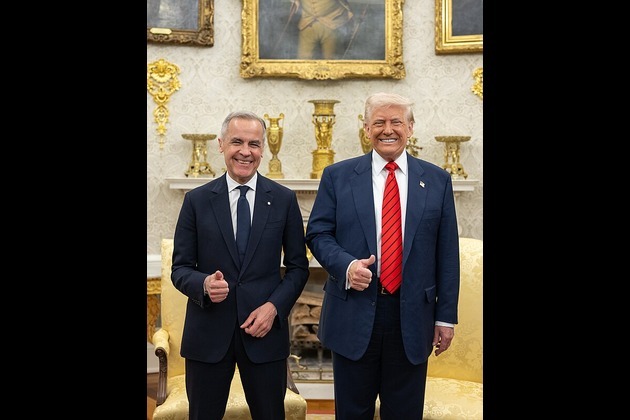Outsourcing the blame: How Australia fuels Chinas emissions
Independent Australia
01 Jul 2025, 11:30 GMT+10

Australias reliance on imported goods masks the true scale of its carbon footprint and lets us off the hook for pollution we helped create, writesJohn Haly.
CLIMATE CHANGE has escalated as the global average temperature has risen above the 1.5C limit we hoped to avoid. China is responsible for 27% of global carbon dioxide emissions,according to the BBC. China is often unfairly blamed for these emissions, despite accounting for 35% of global industrial production, according to the Centre for Economic Policy Research (CEPR).
Still, before we point fingers at other countries, perhaps we in Australia ought to properly evaluate our own carbon footprint, especially that which results from trade, including outsourcing our manufacturing to China and its consequential pollution.
China should not bear ultimate responsibility for the creation of non-recoverable waste resulting from what it manufactures on our behalf, due to following flawed economic principles. That ought to be allocated as Australias pollution.According to MIT, over 22% of Chinas carbon dioxide emissions stem from net exports produced there for global consumption. These emissions are classified as trade-embodied because Chinas exports of goods and services generate the waste on behalf of the global community.
Drastic times call for drastic measuresClimate report suggests net zero by 2050 is unachievable on our current trajectory.
Neoclassical economics and neoliberalism in the late 19th and 20th centuries have promoted trade liberalisation and free market economies. Unsurprisingly, in 2014,Stamford Universityrehashed aHayek-inspired economic myth. It claims that advanced post-industrial economies should consider outsourcing or reorganising their secondary and primary sectors and focusing on their tertiary sector. It was based on a three-sector economic model: primary (agricultural, mining), secondary (manufacturing) and tertiary (services). One advances from the first to the third sector, leaving each level behind.
However, increasing one trophic level of an economy at the expense of others introduces risks. If a country primarily develops its primary sector, it becomes more sensitive to changes in commodity prices, agricultural weather and environmental deterioration. Argentina has exhibited such weaknesses. Australia has retained only a remnant of its secondary trophic levels (manufacturing), eliminating market complexity.
As Aaron Patrick in theAustralian Financial Reviewsaid:
The pandemics supply chain issues, which caused inflation due to limited manufacturing in Australia, have forced subsequent administrations to evaluate the implications of not supporting a domestic manufacturing industry.
In an August 2023 speech, Industry and Science MinisterEd Husicreflected this:
Fight or flight: Adapting to the climate crisisIf politicians continue to destroy our planet's resources and burn the atmosphere, there may be nowhere left to run as civilisations are reduced to nothing.
A robust primary sector can provide the raw materials required for a vital secondary industry. This, in turn, can deliver the infrastructure and technologies essential for a thriving tertiary sector, which feeds back to support the primary and secondary sectors. Internally, we now lack the necessary manufacturing infrastructure capabilities, as do many Western countries. However, no modern economy will survive without some manner of primary, secondary, and tertiary levels.
Consequently, post-industrial economic narratives have facilitated the extensive outsourcing of secondary-level manufacturing, leading to a significant decline in domestic manufacturing capabilities. The fact that 35% of global manufacturing is outsourced to China is sustaining these nations operational economies.
According toClimate Analytics, Australia ranks 11th in worldwide per capita carbon emissions, whereas China ranks 38th, according toVisual Capitalist. Australia accounts for 4.5% of the worlds fossil-fuel carbon dioxide emissions, excluding imports, with 80% of this total coming from fossil fuels.Woodsides North-West Shelf operationswill continue for 40 years as a consequence of the Albanese Government's approval. This should considerably increase the amount of waste we produce.
Chinas pollution-related imports should be credited to other economies. Waste by U.S. corporations producing in China to take advantage ofreduced costs and better logisticsshould be blamed on the U.S. This is often overlooked and is particularly detrimental to Australia.
TheDepartment of Foreign Affairs and Tradereports that Chinas manufactured goods exports to Australia rose 39% to $106 billion from 2019-20 to 2022-23. Australias largest resource and energy market is China, and related waste is a consequence of Australian consumption.
China supplied 63.6 billion (AU$133.6 billion) to theUK in 2024, according to the BBC. Chinese goods accounted for 13.3% of UK imports, making China the top import partner. China is Australias greatest import and export partner. In 2024, Australias exports totalled $196 billion and its imports reached $115.6 billion, according to theAustralian Bureau of Statistics.
When we ignore neoliberal capitalism and capital mobility that facilitates outsourcing, we fail to acknowledge their influence, and we solely attribute carbon pollution to China. China is the outsourcer for much of the secondary trophic level of several Western economies.
Global supply chains and international trade make it challenging to determine which countries are the primary sources of emissions for Chinas industry. We can chart the intermediary cause, not the final accountability. The graph fromOur World in Datashows production-based emissions per capita. It does not account for imported contributions or land use.
(Source:Our World in Data)
Since theGlobal Financial Crisis, Australia has competed with the U.S. for the highest per capita polluter in the world (excluding trade-embodied pollution and land use), only falling behind in 2014 and 2022. The first was a consequence of PMTony Abbottreversing PMJulia Gillardscarbon pricing policy. The second is due to the real-world lag created bypandemic lockdowns. While we fell behind in per capita pollution in 2022, we rebounded in 2023.
One can only imagine that if we included land use (weve 5% of the worlds land mass) and accounted for imported trade-embodied pollution ($115.6 billion in imports from China in 2024), we would hold a more convincing lead position among the worlds greatest per capita polluters. Woodsides additional 40 years of fossil fuel extraction and exporting from the North-West Shelf are surely going to give us a commanding lead for decades to come.
Better measurements are needed for effective mitigation initiatives. My father (the perpetual accountant) often said to me, What gets measured, gets managed. We should include our imported carbon pollution as well as our domestic and exported use. Relevant to Australians because Western economiespost-industrial economic mantraprefers to dismiss individual contributions and ignore collective responsibility.
That failure contributes to morefrequent floods, droughts and massive fires in our country. It provides excuses to minimise our commitment to reducing consumption and addressing the need to switch to batteries and renewables as anything less than an emergency. That choice will result in loss of life, property damage and economic penalty.
We must accept responsibility for driving global temperature above 1.5 degrees, not pass the buck to a country that is manufacturing on our behalf.
John Halyis a freelance writer who manages a freelance business,Halyucinations Studiosin Sydney.
Related Articles
- Australias war on nature leading to environmental collapse
- Arrest and murder of activists a day's work for fossil fuel industry
- Australian politics suffering from collective madness
- How a Victorian fruit merchant could be leading to answers to the climate crisis
- Evidence debunks 'contemptible' climate lies
 Share
Share
 Tweet
Tweet
 Share
Share
 Flip
Flip
 Email
Email
Watch latest videos
Subscribe and Follow
Get a daily dose of Argentina Star news through our daily email, its complimentary and keeps you fully up to date with world and business news as well.
News RELEASES
Publish news of your business, community or sports group, personnel appointments, major event and more by submitting a news release to Argentina Star.
More InformationInternational
SectionBeijing crowds cheer AI-powered robots over real soccer players
BEIJING, China: China's national soccer team may struggle to stir excitement, but its humanoid robots are drawing cheers — and not...
COVID-19 source still unknown, says WHO panel
]LONDON, U.K.: A World Health Organization (WHO) expert group investigating the origins of the COVID-19 pandemic released its final...
Fox faces $787 million lawsuit from Newsom over Trump phone call
DOVER, Delaware: California Governor Gavin Newsom has taken legal aim at Fox News, accusing the network of deliberately distorting...
DeepSeek faces app store ban in Germany over data transfer fears
FRANKFURT, Germany: Germany has become the latest country to challenge Chinese AI firm DeepSeek over its data practices, as pressure...
Canadian option offered to Harvard graduates facing US visa issues
TORONTO, Canada: Harvard University and the University of Toronto have created a backup plan to ensure Harvard graduate students continue...
Israel should act fast on new peace deals, Netanyahu says
JERUSALEM, Israel: Israeli Prime Minister Benjamin Netanyahu says that Israel's success in the war with Iran could open the door to...
Business
SectionLululemon accuses Costco of selling knockoff apparel
Vancouver, Canada: A high-stakes legal showdown is brewing in the world of athleisure. Lululemon, the Canadian brand known for its...
Shell rejects claim of early merger talks with BP
LONDON, U.K.: British oil giant Shell has denied reports that it is in talks to acquire rival oil company BP. The Wall Street Journal...
Wall Street extends rally, Standard and Poor's 500 hits new high
NEW YORK, New York - U.S. stock markets closed firmly in positive territory to start the week Monday, with the S&P 500 and Dow Jones...
Canadian tax on US tech giants dropped after Trump fury
WASHINGTON, D.C.: On Friday, President Donald Trump announced that he was halting trade discussions with Canada due to its decision...
Trump-backed crypto project gets $100 million boost from UAE fund
LONDON, U.K.: A little-known investment fund based in the United Arab Emirates has emerged as the most prominent public backer of U.S....
DIY weight-loss drug trend surges amid high prices, low access
SAN FRANCISCO, California: Across the U.S., a growing number of people are taking obesity treatment into their own hands — literally....













